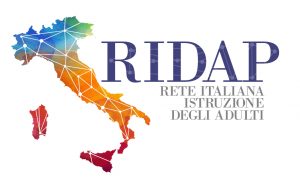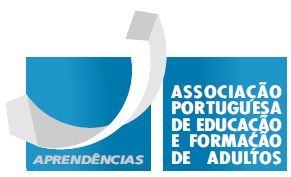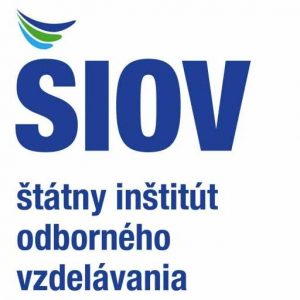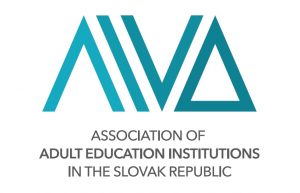Experimental paths for the CERTIFICATION of citizenship skills: Copresc and Volabo Projects
Validation of non-formal and informal learning
Brief description of the main purposes and contents
As part of the research, experimentation and development actions of the metropolitan CPIA of Bologna, two experimental paths were carried out for the certification of the eight key citizenship skills provided for in Ministerial Decree no. 139 of 22 August 2007 of the MIUR, which acknowledges the Recommendation of the European Parliament and of the Council of 18 December 2006 for lifelong learning (2006/962 / EC): learning to learn; to design; to communicate; collaborate and participate; act independently and responsibly; solve problems; identify links and relationships; acquire and interpret information. In 2019, an innovative experience was launched, in an experimental mode, between the Metropolitan CPIA of Bologna and the Provincial Coordination of the Civil Service Bodies of Bologna, with the aim of promoting the development of the culture of enhancement and certification of skills. The aim was to enhance and certify the skills and knowledge acquired in informal and non-formal learning contexts, and in addition to experiment with validation and attestation actions of the previous skills of young people in service at Copresc. In parallel to this agreement in 2020 – between the metropolitan CPIA of Bologna, A.S.Vo. ODV, managing body of the Metropolitan City Volunteer Service Center, and Volabo, within the project “Bologna towards the metropolitan network for lifelong learning” – a collaboration has begun aimed at identifying procedures for identifying, putting in place transparency, validation and certification of citizenship skills in the context of the volunteer experience of the Metropolitan City.
Reasons why the project / program is considered a “good practice”
The projects have contributed to the establishment and implementation of the lifelong learning network with practices that support people in the process of their learning and in the use of their skills in different life contexts. The basic aims were: to recognize and give value to the experience of citizenship, such as that of volunteering, as a context for learning and acquiring skills, to promote and disseminate the culture of certification of skills for the purpose of active participation of individuals to the multiple dimensions of citizenship, contribute to the development of systems for the validation of skills acquired in informal and non-formal contexts. The project, enhancing the experiences and practices already in use, also had the purpose of experimenting with a model for the identification, transparency, validation and attestation of citizenship skills acquired by citizens. The need to recognize, validate and certify the competences of citizens is reaffirmed by various legislative devices, such as the latest decree (5 January 2021) regarding the adoption of the Guidelines for the interoperability of public bodies holding the national certification system skills.
Managing authority / organisation
CPIA Metropolitano di Bologna
Main target group
Adult people in general.
Source of funding
Public funds (national, regional …).
Stakeholders involved
The two experimental experiences were supported by the Social Development Area of the Metropolitan City of Bologna, as part of the project “Bologna, towards a metropolitan city for lifelong learning “, and were implemented by the metropolitan CPIA together with Co.Pr.E.S.C. (Provincial Coordination of Civil Service Entities) of Bologna and Volabo (Service Center for Volunteers of the Metropolitan City of Bologna).
Contribution of the practice in improving / promoting the social inclusion of the beneficiaries
Recognition of skills allows people to:
- plan and/or re-plan one’s own learning path starting from one’s own experiences, (without having to relearn what one already knows and what one already knows how to do);
- shorten the duration for obtaining a degree or qualification;
- focus only on actual learning needs;
- strengthen one’s own self-esteem;
- to attribute a formal value to one’s own experiences also in function of their usability in the labor market;
- transfer the formalized skills from one context to another.
The recognition of skills also provides people with a powerful motivational boost and an opportunity to reflect on their needs, to identify new learning opportunities, to complete their study path and to train.
Elements of the project / program that could be easily transferred to other contexts
The dimension of Lifelong Learning and the certification of skills, embody a particularly innovative sector both on a theoretical and research level and on an operational level, on which the CPIAs will be called upon to deal with ever greater commitment in the short and medium term.
The challenges that CPIAs have to face today in their daily practice are closely linked to the economic and social transformations underway at a global level, to the methods that the European Union has adopted to deal with them and to the ability of our country to implement guidelines and indications.
The crisis has highlighted the significant role that adult learning can play to achieve the objectives of Europe 2020.
Education in adulthood and the possibility of learning throughout the course of life represent not only a defense in the face of economic instability but are, more broadly, a source of personal well-being and a means for a real exercise of citizenship rights.
Providing quality, fair, inclusive education and learning opportunities for all is one of the objectives reaffirmed by the 2030 Agenda for Sustainable Development.
Other potential target groups to which the project / program could be extended
To people who are socially and economically disadvantaged or less qualified.
The validation of learning outcomes, i.e. knowledge, skills and competences acquired through non-formal and informal learning, can play an important role in improving employability and mobility, as well as in increasing motivation for lifelong learning;
it can make a valid contribution for entering the labor market, promoting competitiveness and economic growth.
To promote and enhance employability by raising the levels of education, to encourage and support unspoken demand, to respond to training needs coming from the production chains of the territory, to counteract the phenomenon of NEETs are among the priority objectives of the CPIAs, whose formative offer was designed to promote the recognition of previous learning, regardless of where or how they were acquired.
Practical evaluation carried out
No.
Participation data
Copresc project – CPIA
Between December 2020 and June 2021, the certificate was issued to thirty eight (38) volunteers employed in regional civil service projects; and one hundred and fifty eight (158) volunteers employed in universal civil service projects.
Volabo Project – CPIA
Between September 2020 and May 2021, the certificate was issued to 25 volunteers.
Description of the methods of implementation and any recommendations
The implementation of a service for the identification, validation and attestation of experiential skills carried out thanks to the COPRESC and VOLABO practices in response to the demand for enhancement of skills coming from the world of civil service and volunteering allows to re-evaluate and relaunch the role of CPIA as the reference subject: within the lifelong learning network, it may provide specific services for the identification, validation and certification of skills, in particular of the basic skills deriving from formal and informal experiences, for the benefit of the adult population.
Project / program website or other online reference resources
Link between CPIA and IISS with second level courses
Area — Validation of non-formal and informal learning
Brief description of the main purposes and contents
The credit recognition process allows the personalization of the path for adults who re-enter the education system:
it allows the enhancement of the skills acquired in any case and makes it possible to make the paths sustainable.
Criteria to which the identified good practice corresponds
Relevance to one or more of the 4 identified themes – involvement of adults in training, guidance, teaching and learning of basic skills, validation of non-formal and informal skills.
Reasons why the project / program is considered a “good practice”, in light of the criteria identified above
The connection through modular planning favors the continuation of adult studies: the general education area and the specific area are managed in synergy between CPIA and IISS;
the connection favors the enhancement of the skills of each student and the personalization of the path;
the student’s record book collects the scholastic experience and accompanies “vertically” the students who after the CPIA continue at the IISS with second level courses.
Implementing Organization / Entity
CPIA Montagna e IISS della rete
Main target group
Adult people in general.
Source of funding
Public funds (national, regional …)
Which stakeholders were involved in the implementation of the project / program? How did they get involved?
CPIA and IISS with second level paths that are part of the Network.
How does the practice contribute to improving / promoting the social inclusion of beneficiaries?
The connection between CPIA and IISS of the Network favors the educational success of students who, with the achievement of a diploma, can have greater opportunities for inclusion into the labor market and for a better integration.
What elements of the project / program could be easily transferred to other contexts?
Modular design; the student’s record book; credit recognition vademecum
Other potential target groups to which the project / program could be extended
Adults and young adults; migrants; women.
Has the project / program foreseen an evaluation phase?Yes, it has.If so, what were the results and what actions were taken on the basis of these?
The project provides for constant monitoring.
Participation data (if available, also indicate the reference period and the data relating to the number of people reached, with particular regard to those with low education / skills at risk of obsolescence)
On average, in the last three years, 25/30 students have benefited from the actions described and passed from the CPIA to the IISSs of the Network.
Description of the methods of implementation and any recommendations
Modular design update; implementation of vademecum to favor the establishment of increasingly shared procedures.
Project / program website or other online reference resources
On the CPIA Montagna website www.cpiamontagna.edu.it there is a section dedicated to modular design on the net; this section is being implemented.







